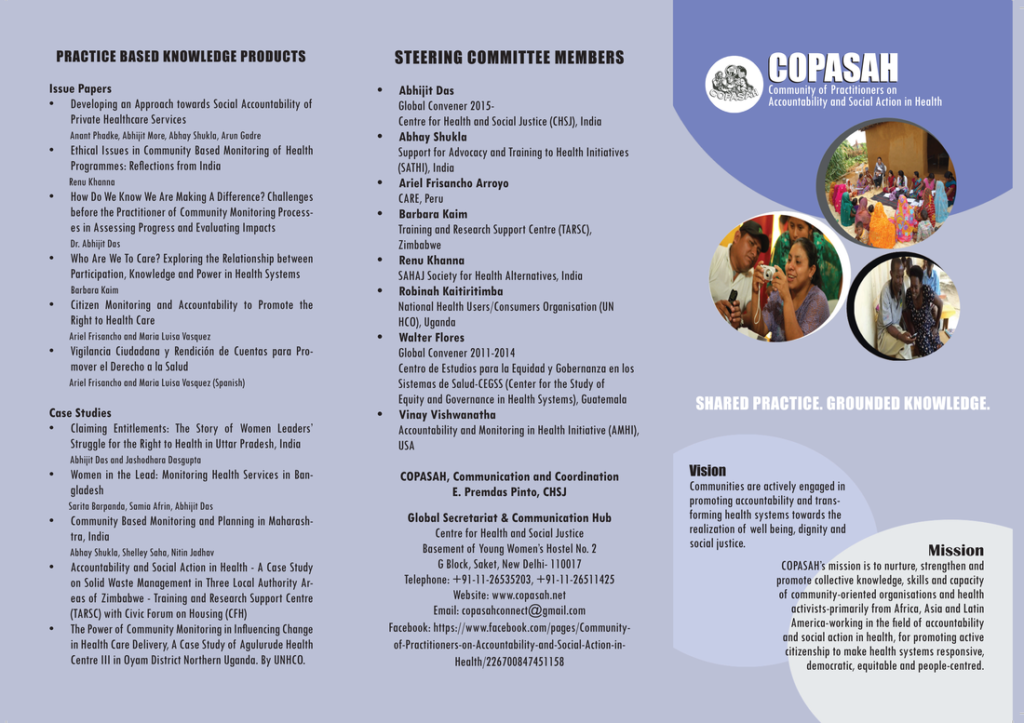
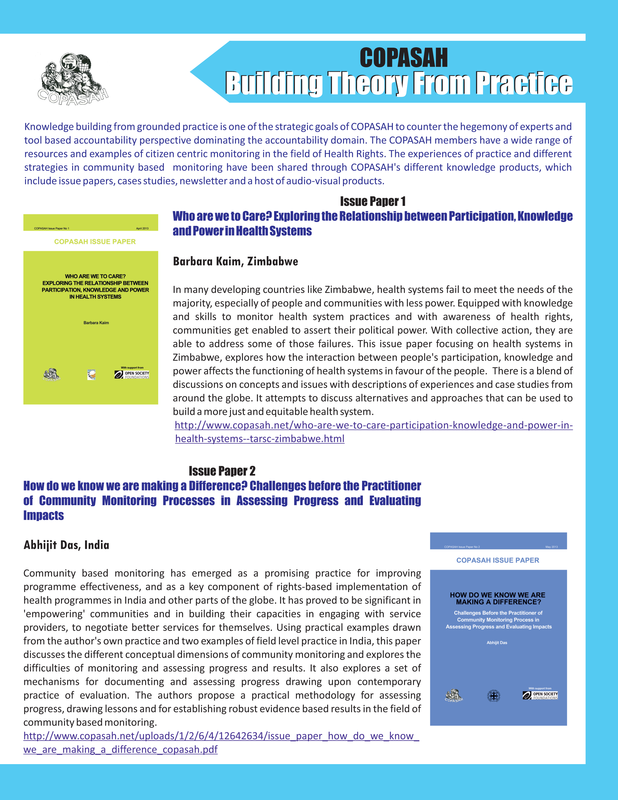

The COPASAH Steering Committee (SC) includes representatives from each of the six global regional hubs represented in the convening (Africa, South Asia, Eastern Europe and Latin America).The SC is composed of the following members:
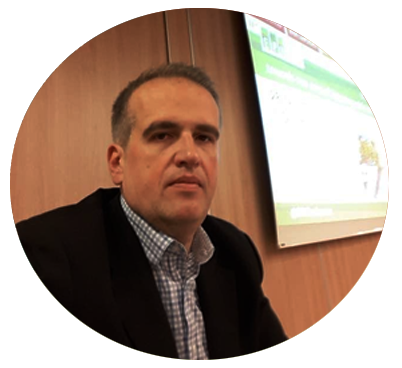
Global Co - Convener - COPASAH
Association for emancipation, solidarity and equality of women – ESE, Macedonia
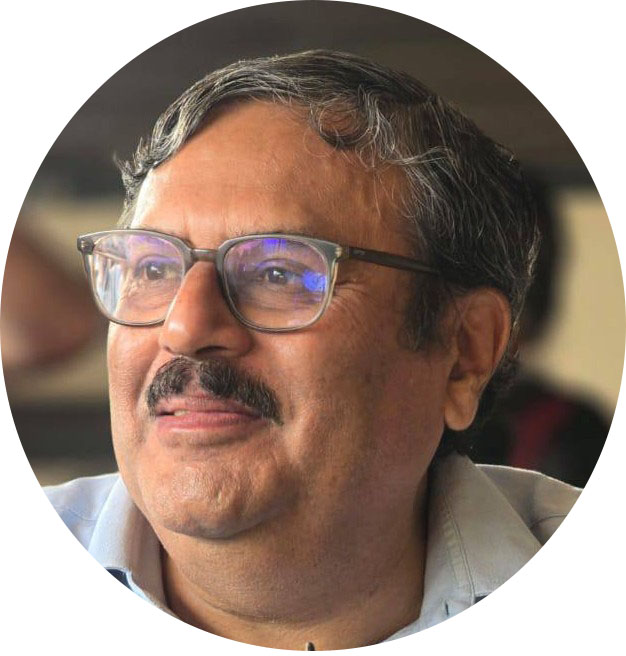
Global Convener - COPASAH
Support for Advocacy and Training to Health Initiatives (SATHI), India
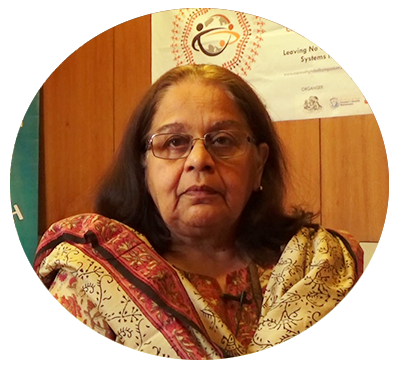
Member
Founder Member, SAHAJ Society for Health
Alternatives, Baroda, India
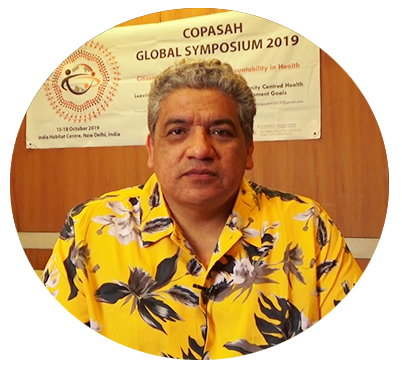
Member
Global Convener - COPASAH
(2012 - 2014 )
Centro de Estudios para la Equidad y
Gobernanza en los Sistemas de Salud-CEGSS (Center for the Study of Equity and Governance in Health Systems) (CEGSS), Guatemala
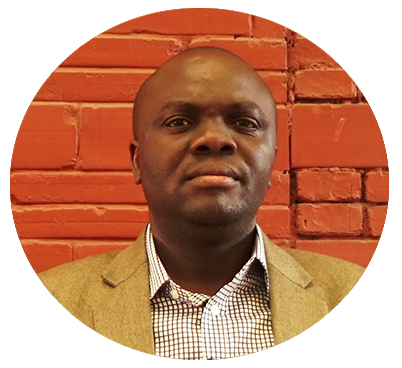
Member
Founder and Executive Director
Afya na Haki (Ahaki)
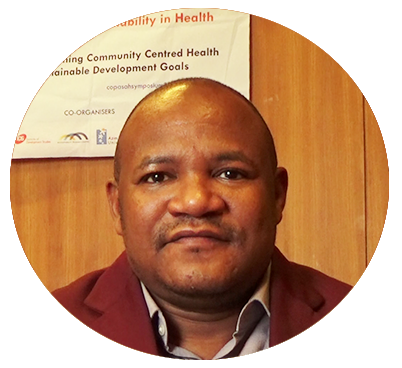
Member
Global Co - Convener - COPASAH
(2020-2024)
Africa Health Budget Network (AHBN) Nigeria
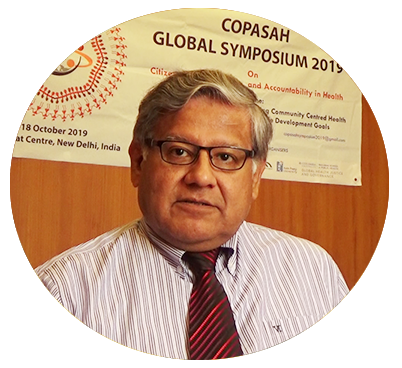
Member
PRISMA, Peru